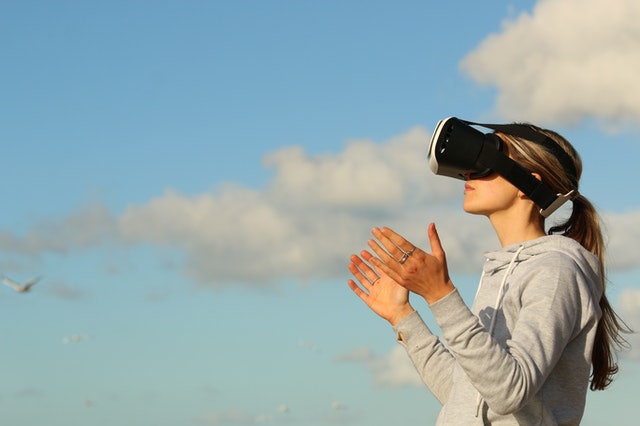The COVID-19 pandemic has spiked the average American’s stress level. In a 2020 Harris Poll conducted by the American Psychological Association, 70% of surveyed adults reported significant stress from basic needs, education, parenting, government response, the economy and work.
And that’s a random survey of people in all sorts of jobs and situations.
For healthcare workers, unprecedented caseloads, the anxiety of regular exposure to COVID-19 positive patients and grief from a high number of patients deaths can lead to post-traumatic stress disorder, or PTSD.
In Kent and Sussex counties, Bayhealth, which has hospitals in Dover and Milford, staff members who work in designated COVID units tested a virtual reality therapy to help manage the extra stress they face daily.
“There are many studies out there that show that virtual reality works in helping reduce patient stress levels. There’s just not much out there regarding reducing staff stress levels, especially healthcare staff,” said Cardiac Clinical Nurse Specialist Ludy Santiago-Rotchford, who partnered with Clinical Informatics Nurse Will Harvey for the study, in a Bayhealth report.
Participants wore a virtual reality headset that simulated a guided meditation for five to 10 minutes.
“Studies have shown that it can reduce stress levels which results in lowered blood pressure, heart and respiratory rates while increasing your temperature,” Santiago-Rotchford said. “The reason it does that is because when you’re more relaxed you have vasodilation and with that your temperature can go up.”
The feedback so far has been positive, they’ve found.
Virtual reality has been used both therapeutically and as an education tool by ChristianaCare in the last few years. Patients undergoing chemotherapy have reported that VR used as distraction therapy has effectively helped to relax them during stressful procedures. VR has also been used by ChristianaCare as a tool to help train non-healthcare workers how to administer Narcan to prevent death from opioid overdose, by placing the learner in the middle of a situation where they witness a “civilian” do it in a public setting.
Harvey said that Bayhealth may use VR therapy with patients in the future, possibly including during labor and acute anxiety episodes.







